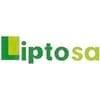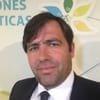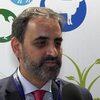
Content sponsored by:
LIPTOSA
Liptosa starts new R&D CDTI project on phytobiotics and nutraceuticals against aquaculture pathologies
Published: September 6, 2016
By: Liptosa - misPeces
The Spanish Company, Liptosa, has started a new CDTI project called LIPTOAVAN, which main objective is the development of phytobiotics and nutraceuticals able to face common aquaculture pathologies.
The project, which was approved in may this year, supports the use of phytobiotics “as animal welfare enhancers and sustainable aquaculture”.
To develop the project a new research line will be applied focused on the identification of plant extract and essential oils that show enough activity on certain pathogens, responsible of wreak havoc in aquaculture.
Target species are sea bream, trout, salmon, tilapia and shrimp.
Renowned Spanish research centres such as Research & Technology Food &Agriculture (IRTA), University of Santiago de Compostela (USC), Health Surveillance Centre of the University Complutense (VISAVET) and Eco Aqua Institute of the University of Las Palmas de Gran Canaria (ULPGC). At international level, Foundation Chile and University of Arizona will also collaborate at LIPTOAVAN project.
Liptosa, pioneer company in the use of plant extract and essential oils as an antibiotics alternative for animal nutrition, bets more and more in research projects as a strategy for growth and development.
Actual aquaculture Liptosa’s market is positioned in Europe through Spain, Greece, Turkey, Italy and Portugal; Asia in India, Indonesia, Bangladesh; South America through Chile, Peru, Ecuador; and in Africa in Egypt, Mali, Ghana.
These markets are committed to improve animal welfare through the use of phytobiotics able to improve the fish and shrimp health.
A good fish and shrimp health status is an effective barrier against the onset of pathological processes. Natural ingredients can reduce the use of antibiotics and disinfectants, promoting sustainable aquaculture.
Source
Liptosa - misPecesRelated topics:
Recommend
Comment
Share

14 de septiembre de 2016
Liptosa has wide experience using phytobiotics and we are already in more than 50 countries. We will very glad to collaborate with you, Vegesna Biosolutions. Please, contact me at cristina.garcia@liptosa.com for further information.
Recommend
Reply
13 de septiembre de 2016
We already have a few phytobiptic combinations which are successful in treating gut infections and preventing viral infections in shrimp. Is there a way to collaborate with liptoda. I would like to connect with somebody in liptpsa regarding the same.
Recommend
Reply

Would you like to discuss another topic? Create a new post to engage with experts in the community.




